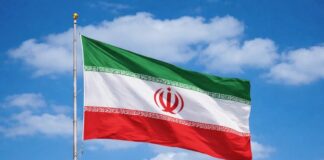Climate change and the relaunch of the global economy will top the G20 agenda as leaders of the world’s most advanced nations meet Saturday, the first in-person gathering since the pandemic.
Looming over the two-day talks in Rome is pressure to make headway on tackling global warming, ahead of the key COP26 summit kicking off in Glasgow Monday.
The stakes are high, with United Nations Secretary-General Antonio Guterres warning G20 leaders Friday to show “more ambition and more action” and overcome mistrust in order to advance climate goals.
“We are still on time to put things on track, and I think the G20 meeting is the opportunity to do that,” Guterres said.
Italian Prime Minister Mario Draghi met leaders as they arrived in the futuristic convention centre known as the “Nuvola” (cloud) in EUR, a southern Rome district built by Benito Mussolini to glorify his fascist regime.
US President Joe Biden flew in on Friday, hoping to turn a page from the tumultuous Trump years and show that American leadership on the world stage is restored.
Yet the Democrat faces a credibility test as his own signature climate policy — part of a sweeping economic package — is held up amid infighting within his party in Congress.
He met Friday with Pope Francis and then French counterpart Emmanuel Macron, where he admitted Washington had been “clumsy” in handling a submarine deal with Australia and Britain that left Paris out in the cold.
Russia’s Vladimir Putin and China’s Xi Jinping are absent from Rome, attending only by video link, but the others are taking advantage of the first in-person G20 for more than two years to hold a flurry of bilaterals.
Biden will meet Macron, Germany’s Angela Merkel and Britain’s Boris Johnson later Saturday for talks on Iran, after Tehran said it would resume discussions with world powers next month on reviving the 2015 nuclear accord.
Security is tight in Rome following violent protests earlier this month over the extension of Italy’s coronavirus pass to workplaces, and a Fridays for Future climate march is expected in the city later in the day.
Draghi has called for a “G20 commitment on the need to limit the rise in temperatures to 1.5 degrees” above pre-industrial levels, the most ambitious target outlined in the 2015 Paris Agreement on climate change.
Johnson — the host of the UN climate summit next week — said neither the G20 nor the COP26 meetings could stop global warming, and “the most we can hope to do is slow the increase”.
Humanity, Johnson told reporters on board his flight to Rome, can regress “at extraordinary speed”.
“You saw that with the decline and fall of the Roman Empire, and I’m afraid to say that it’s true today unless we get this right in tackling climate change,” he said.
Complicating the task for the G20 will be disparities between top world powers.
China, the world’s biggest polluter and responsible for more than a quarter of all carbon emissions, has been accused of sidestepping calls to stop building new coal-fired power plants.
A new plan submitted by Beijing to the UN ahead of COP26 fell short of environmentalists’ expectations, with a target date of 2060 to reach carbon neutrality.
Brazilian President Jair Bolsonaro, meanwhile, has steadfastly demanded that his country be paid for protecting its share of the Amazon.
The world’s biggest rainforest is seen as a vital resource to combat climate change for its ability to absorb fossil fuel emissions.
– Taxing global players –
A surer bet for concrete progress at the G20 involves taxation, as the group is expected to endorse the 15 percent minimum international tax rate on multinational companies after nearly 140 countries reached an OECD-brokered deal.
The move seeks to end tax optimisation, in which global corporations — including big US tech firms such as Apple and Google parent Alphabet — shelter profits in countries with low-tax systems.
The OECD says a 15 percent global minimum corporate tax rate could add $150 billion annually to global tax revenues.
No new pledges are expected on Covid-19 vaccines at the summit.
G20 finance and health ministers meeting Friday said members would “take steps to help boost the supply of vaccines and essential medical products and inputs in developing countries and remove relevant supply and financing constraints.”





